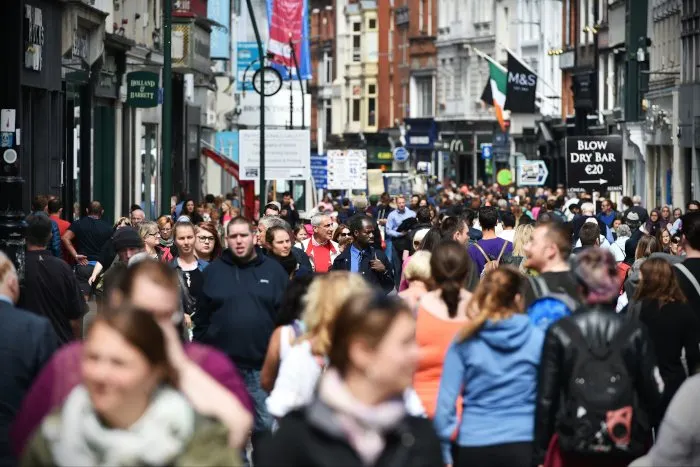The growing deportation backlogs in Ireland are increasingly straining the immigration system, with thousands of unresolved deportation cases creating administrative and humanitarian challenges. Legal obstacles, logistical issues, and security concerns are key drivers behind this growing problem. According to sources within The Irish Times, these delays have become more pronounced following several high-profile incidents, including one in Saggart involving a failed asylum seeker facing serious charges. Although a deportation order was issued months ago, execution has stalled due to travel restrictions and the lack of direct air routes to the individual’s home country, a clear illustration of how complex deportation enforcement can be in practice.
Legal and Logistical Barriers Prolong Deportation Case Processing Time
The Garda National Immigration Bureau (GNIB), which oversees deportations, describes the process as “multifaceted and difficult.” Each deportation often requires international coordination, particularly with embassies and consulates in countries facing instability or political turmoil. These conditions complicate travel logistics and lengthen the deportation case processing time. Countries affected by civil unrest or those that refuse to cooperate with Irish authorities often make repatriation nearly impossible.
The Irish Department of Justice reports that while deportation orders have surged by 180%—from 857 in 2022 to 2,403 in 2023—the number of completed removals remains far lower. Only 1,122 individuals were removed through voluntary or enforced deportations, showing a persistent immigration case backlog. As of October 2023, 3,370 deportation orders had been signed, yet fewer than half had been carried out.
Humanitarian Concerns and the Impact of Deportation Delays on Migrants
The deportation delays impact migrants in several profound ways. Many individuals with outstanding deportation orders are still residing in accommodation facilities funded by the International Protection Accommodation Service (IPAS). Roughly 500 of these individuals remain in government-supported housing, with around 460 staying at the Citywest transit hub in Dublin, a location that has drawn attention amid anti-immigration protests.
The Department of Justice has clarified that Citywest is not a detention center but a processing hub for both asylum seekers and failed applicants. However, living under uncertain legal status creates anxiety and social isolation for migrants awaiting deportation, especially when delays stretch for months or even years.
When deportation orders are issued, individuals are typically assigned a departure date. Those who fail to comply may be detained for up to eight weeks in facilities such as Mountjoy or Cloverhill Prison. This legal mechanism aims to ensure compliance but has sparked human rights discussions regarding the ethics of detaining individuals whose deportations are stalled by factors beyond their control.
Security and Diplomatic Challenges Deepen the Immigration Case Backlog
Efforts to resolve deportation backlogs in Ireland are frequently hindered by international diplomacy and security barriers. Some nations refuse to repatriate their citizens due to political instability, lack of documentation, or safety concerns. Closed airports, civil conflict, and government non-cooperation can force Irish authorities to resort to costly chartered flights or special security arrangements.
This combination of bureaucratic, diplomatic, and logistical complications has led to a cycle of delay, where even signed deportation orders remain unenforced for extended periods. Meanwhile, the Irish government continues to balance legal enforcement with humanitarian obligations and the operational realities of an overloaded system.

Broader Policy Implications and the Future of Ireland’s Immigration System
While asylum applications have decreased, falling from over 15,000 in 2024 to 9,589 in the first nine months of 2025, the deportation backlogs in Ireland persist. Major source countries for asylum seekers include Nigeria, Somalia, Pakistan, Afghanistan, and Georgia. Despite reduced inflows, authorities remain burdened by the legacy of unresolved deportation cases, each requiring individual assessment and coordination with multiple agencies.
This situation has ignited domestic political debate. Critics argue that prolonged deportation case processing time undermines public confidence in the immigration system, while human rights advocates stress the moral obligation to ensure fair treatment and due process. The Irish government thus faces a delicate balancing act: enforcing immigration law efficiently while maintaining Ireland’s commitment to humanitarian standards.
Key Takeaways
- Deportation backlogs in Ireland are growing due to legal, logistical, and diplomatic obstacles that make removals slow and complex.
- The deportation case processing time has increased, with more orders being signed than actually enforced.
- Hundreds of migrants with deportation orders remain in government-funded accommodation, facing uncertainty and social strain.
- Diplomatic and security challenges, especially with unstable or non-cooperative countries, further complicate deportation efforts.
- The immigration case backlog highlights Ireland’s ongoing struggle to balance enforcement efficiency with human rights and due process.
Conclusion
The deportation backlogs in Ireland reflect a convergence of legal, logistical, and diplomatic challenges that slow enforcement and deepen administrative strain. As deportation orders rise faster than removals can be completed, migrants caught in the system face prolonged uncertainty and vulnerability. Until international cooperation improves and procedural bottlenecks are addressed, the immigration case backlog is likely to persist — shaping the ongoing national conversation about immigration, justice, and human rights in Ireland.
Stay updated on immigration changes — subscribe to our daily newsletter.
Globe Migrant keeps you informed on the latest in global mobility, immigration policy, and migrant affairs.
For more information on Ireland’s immigration and asylum procedures, visit the Department of Justice – Immigration Service Delivery.
Learn more about asylum and deportation trends from The Irish Times report on Immigration Backlogs and Deportation Delays

